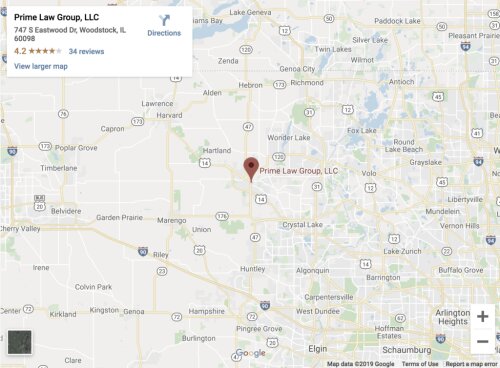Best Sexual Harassment Lawyers in Alabama
Share your needs with us, get contacted by law firms.
Free. Takes 2 min.
Or refine your search by selecting a city:
List of the best lawyers in Alabama, United States
About Sexual Harassment Law in Alabama, United States
Sexual harassment is a serious issue that affects people in various settings, especially workplaces. In Alabama, as throughout the United States, sexual harassment is generally defined as unwelcome sexual advances, requests for sexual favors, and other verbal or physical conduct of a sexual nature that can create a hostile, intimidating, or offensive environment. While Alabama does not have comprehensive state-level laws specifically addressing sexual harassment, protections are provided under federal law and through certain state policies and regulations.
Typically, people experiencing sexual harassment in Alabama may seek recourse under Title VII of the Civil Rights Act of 1964, as well as the Equal Employment Opportunity Commission (EEOC) guidelines. These laws apply to employers with 15 or more employees and cover both workplaces and educational institutions. Sexual harassment can also be actionable under certain criminal statutes depending on the nature of the conduct.
Why You May Need a Lawyer
If you believe you have been a victim of sexual harassment, consulting a lawyer can be crucial. Here are some common situations where legal help is advised:
- You are experiencing ongoing sexual harassment at work and internal complaints have not resolved the issue.
- You are facing retaliation after reporting sexual harassment, such as being demoted, fired, or otherwise mistreated.
- You need help understanding your rights under federal or Alabama law.
- You want to file a complaint with the EEOC but are unsure of the process or required documentation.
- You are considering negotiating a settlement or pursuing a civil lawsuit against your employer or harasser.
- You have suffered emotional, physical, or financial harm due to sexual harassment and seek compensation.
- The harassment may also involve potential criminal conduct, and you are unsure which steps to take next.
- You are an employer seeking advice on compliance and prevention of sexual harassment claims.
Local Laws Overview
Unlike some states, Alabama does not have its own comprehensive laws explicitly prohibiting sexual harassment in employment. However, all Alabama employers are subject to federal laws, particularly Title VII of the Civil Rights Act, which prohibits sexual harassment and discrimination based on sex. Workers in Alabama are protected against:
- Quid pro quo harassment: when job benefits are conditioned on sexual favors.
- Hostile work environment: when unwelcome sexual conduct unreasonably interferes with work performance or creates an intimidating environment.
Complaints about sexual harassment must often first be filed with the EEOC before a lawsuit can be brought. The time limit to file an EEOC charge in Alabama is generally 180 days from the date the harassment occurred. Some local municipalities like Birmingham have worked to expand local anti-discrimination protections, but federal protections remain the primary resource in most cases.
Frequently Asked Questions
What constitutes sexual harassment at work in Alabama?
Sexual harassment includes unwelcome sexual advances, requests for sexual favors, verbal or physical conduct of a sexual nature, or other behavior that creates an intimidating or hostile work environment.
Does Alabama have state laws addressing sexual harassment?
Alabama mostly relies on federal laws such as Title VII of the Civil Rights Act to address sexual harassment. State law does not specifically prohibit workplace sexual harassment, but some localities are working to create additional protections.
How do I report sexual harassment at work in Alabama?
You may report harassment to your employer or HR department first, if possible. If the issue is not resolved, you can file a charge with the EEOC within 180 days of the last incident of harassment.
Can I be fired for reporting sexual harassment?
It is illegal for an employer to retaliate against you for reporting sexual harassment. If you are fired or punished after making a complaint, you may have grounds for a legal claim.
Is sexual harassment only physical?
No, sexual harassment can be verbal, written, or visual as well as physical. Inappropriate jokes, comments, gestures, or emails can all qualify as harassment if unwelcome and severe or pervasive.
Do federal laws protect all Alabama workers from sexual harassment?
Federal laws protect employees at employers with at least 15 employees. Employees at smaller businesses may have fewer protections, though other legal avenues may sometimes be available.
What should I do if I witness sexual harassment?
If you witness harassment, consider reporting it to your employer or HR department. Your employer should investigate complaints promptly and take steps to stop the harassment.
Can men be victims of sexual harassment?
Yes, both men and women can be victims of sexual harassment, and the harasser can be of any gender.
How long do I have to file a complaint?
You generally have 180 days from the last incident of harassment to file a charge with the EEOC if you are in Alabama.
What compensation can I receive if my sexual harassment claim is successful?
Possible remedies include reinstatement, back pay, front pay, compensatory damages for emotional distress, punitive damages, and legal fees.
Additional Resources
For those seeking help with sexual harassment issues in Alabama, the following resources may be useful:
- Equal Employment Opportunity Commission (EEOC): Handles workplace discrimination and harassment complaints.
- Alabama Department of Labor: Provides information on workers' rights.
- Local legal aid organizations: Offer free or low-cost legal advice to qualifying individuals.
- Local advocacy groups focused on victims' rights and workplace safety.
- The U.S. Department of Education Office for Civil Rights: Handles sexual harassment and discrimination complaints in educational institutions.
Next Steps
If you believe you have experienced or are experiencing sexual harassment, you should:
- Document every incident, including dates, locations, and any witnesses.
- Review your employer's sexual harassment policy and follow internal procedures for reporting the harassment.
- File a formal complaint with HR or your supervisor, if safe to do so.
- If the response is inadequate, consider filing a charge with the EEOC within 180 days.
- Consult with an experienced employment or civil rights attorney in Alabama who can assess your case and guide you through your options.
- Seek support from advocacy organizations or support groups for victims of sexual harassment.
Taking action early and getting proper legal advice can help protect your rights and prevent further harm.
Lawzana helps you find the best lawyers and law firms in Alabama through a curated and pre-screened list of qualified legal professionals. Our platform offers rankings and detailed profiles of attorneys and law firms, allowing you to compare based on practice areas, including Sexual Harassment, experience, and client feedback.
Each profile includes a description of the firm's areas of practice, client reviews, team members and partners, year of establishment, spoken languages, office locations, contact information, social media presence, and any published articles or resources. Most firms on our platform speak English and are experienced in both local and international legal matters.
Get a quote from top-rated law firms in Alabama, United States — quickly, securely, and without unnecessary hassle.
Disclaimer:
The information provided on this page is for general informational purposes only and does not constitute legal advice. While we strive to ensure the accuracy and relevance of the content, legal information may change over time, and interpretations of the law can vary. You should always consult with a qualified legal professional for advice specific to your situation.
We disclaim all liability for actions taken or not taken based on the content of this page. If you believe any information is incorrect or outdated, please contact us, and we will review and update it where appropriate.
Browse sexual harassment law firms by city in Alabama
Refine your search by selecting a city.












